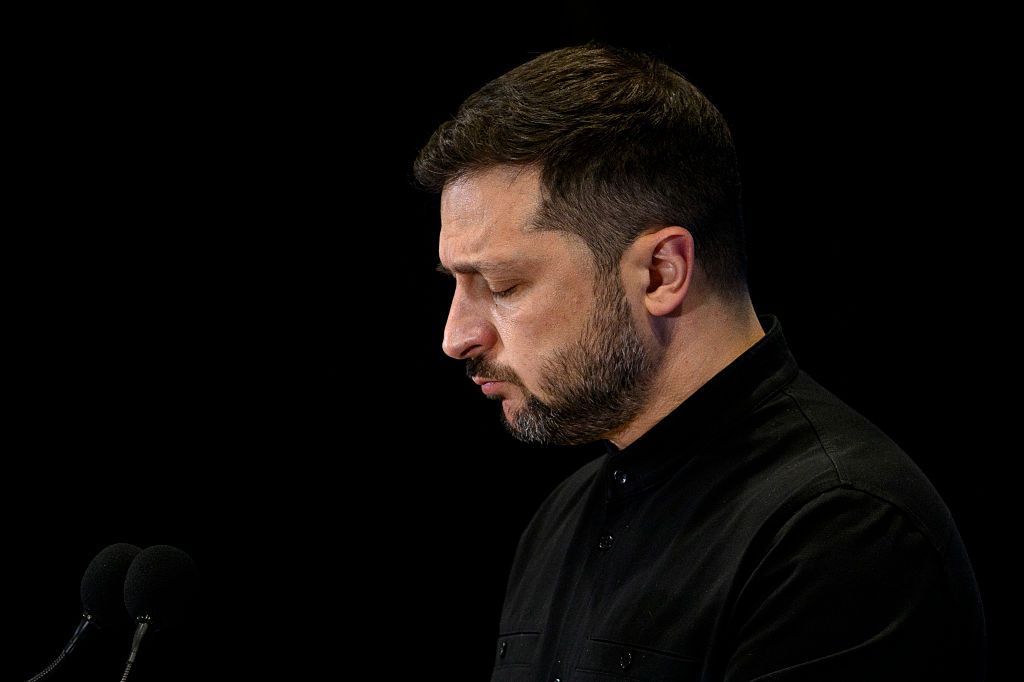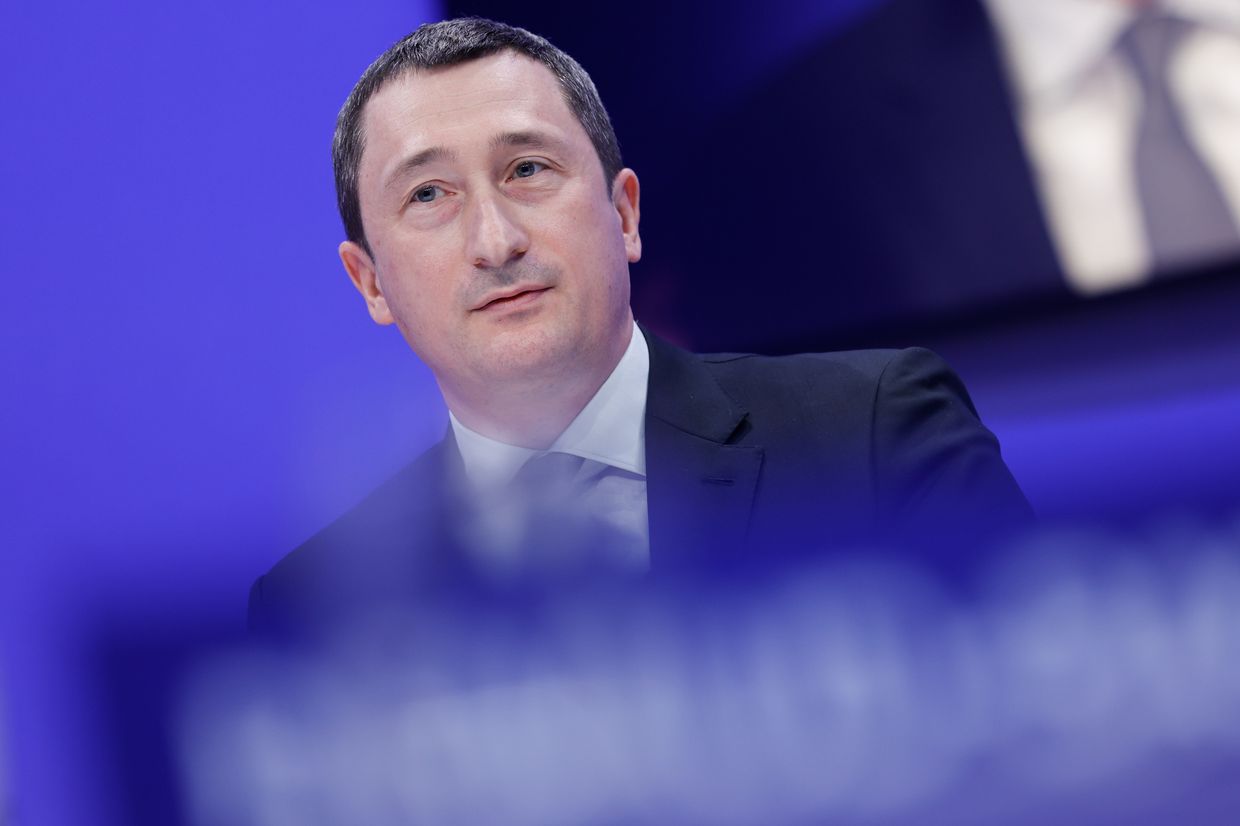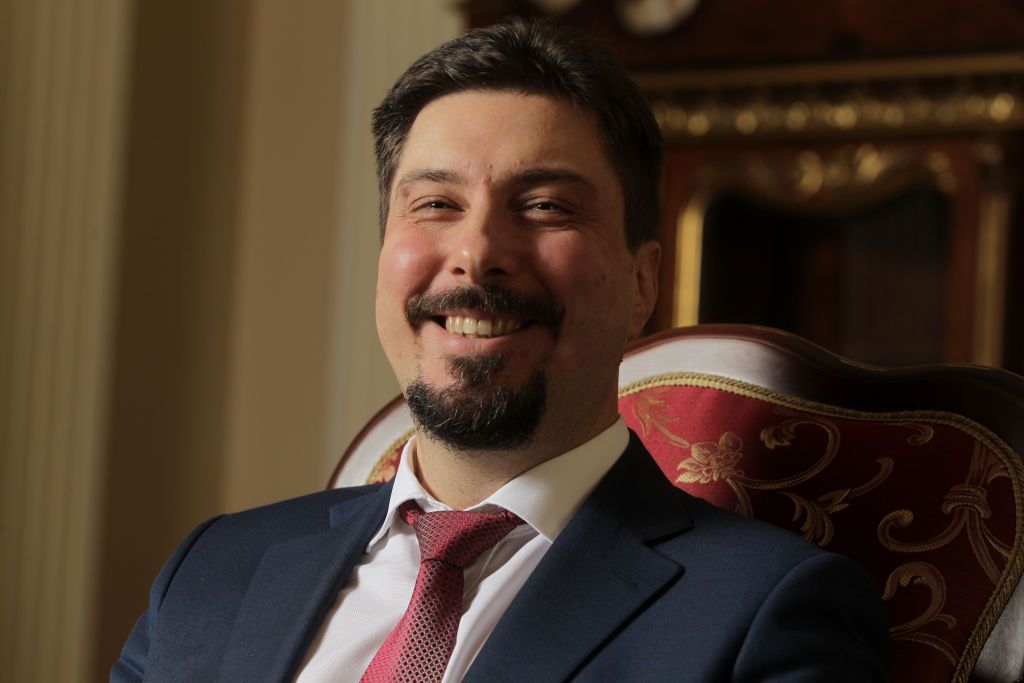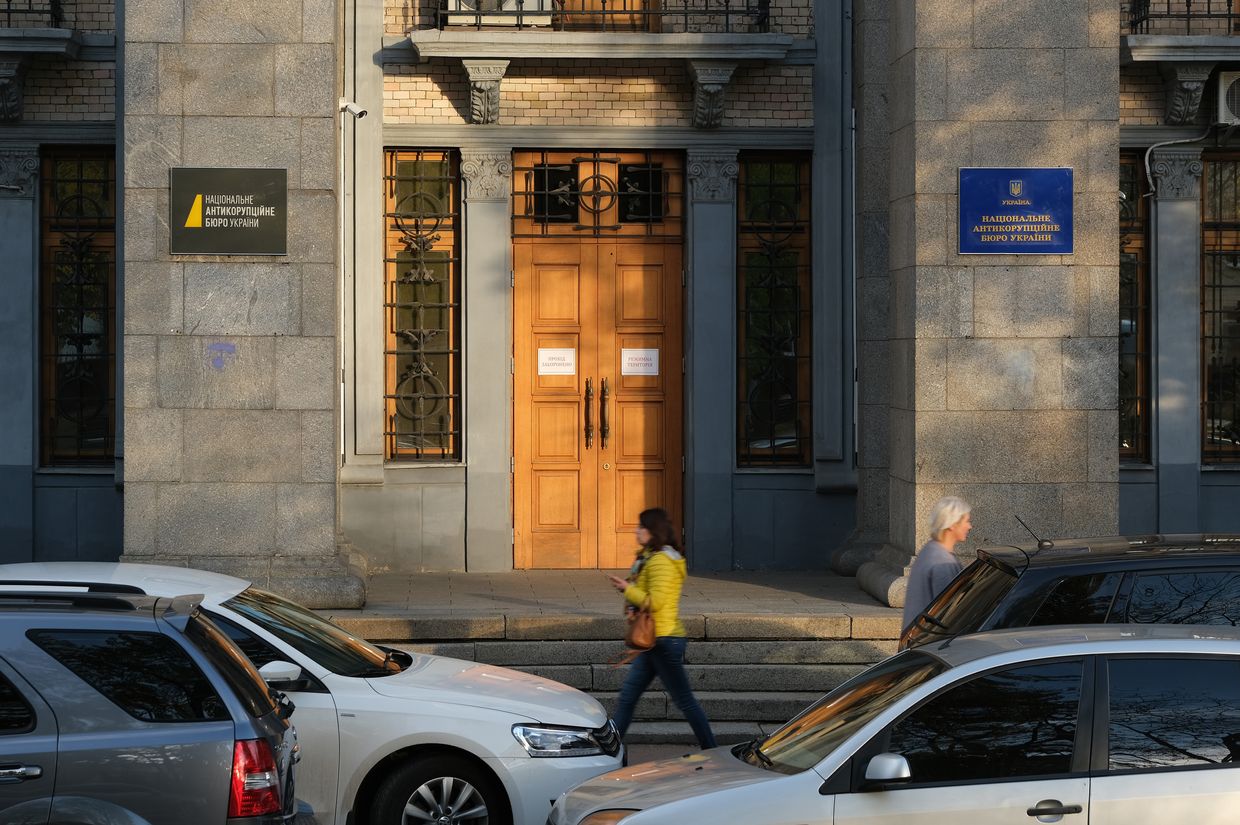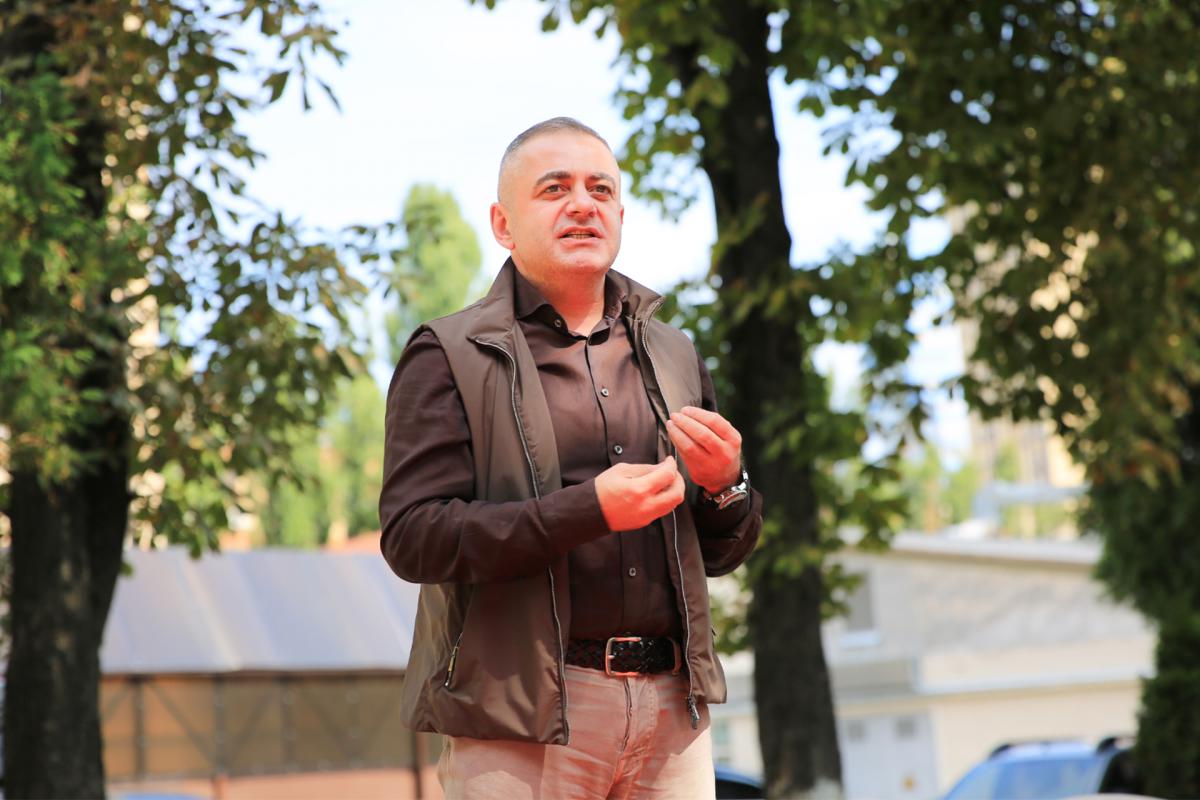How effective were Ukraine's anti-corruption agencies targeted by Zelensky, and who were they investigating?

Protesters turned on the flashlights and hold placards during rally against law that restricts independence of anti‑corruption institutions on July 22, 2025 in Kyiv, Ukraine. (Vitalii Nosach/Global Images Ukraine via Getty Images)
Volodymyr Zelensky's decision to sign a bill targeting the independence of anti-corruption agencies followed mounting investigations that involved high-ranking officials and those close to the president.
Zelensky's critics argue that the corruption cases against his associates and top incumbents were the real reason behind the bill. The President's Office did not respond to requests for comment.
The officials under investigation have denied the accusations of wrongdoing.
On July 25, Zelensky made a U-turn, submitting a bill set to restore the independence of the National Anti-Corruption Bureau (NABU) and the Specialized Anti-Corruption Prosecutor's Office (SAPO).
The move followed the first large-scale protests during the full-scale invasion all over Ukraine.
But how effective were the anti-corruption institutions that have been at the center of the scandal and who were they investigating to spark such an outcry?
Recent cases against Zelensky's allies
One of the NABU's recent targets, former Deputy Prime Minister Oleksii Chernyshov, is considered a close ally of Zelensky.
He left Ukraine in June, days before the NABU and SAPO detained two of his former close associates. Despite his claim that he had been on a scheduled business trip, critics accused him of attempting to evade charges.
Chernyshov returned to Ukraine later that month following growing public pressure and reported to the NABU the following day. He was charged with bribery and abuse of power.
The National Anti-Corruption Bureau later released a statement announcing that Chernyshov was the sixth suspect in a "large-scale" corruption scheme led by a property developer from Kyiv who illegally claimed a land plot to build a residential complex.
A source at the National Anti-Corruption Bureau told the Kyiv Independent that he believed the Chernyshov case was a factor that prompted the authorities to pass the bill that destroyed the anti-corruption agencies' independence.
In June, the NABU arrested a relative of Zelensky's business partner Timur Mindich, a film producer and co-owner of the president's Kvartal 95 production company, when he was trying to flee abroad, according to the online newspaper Ukrainska Pravda.
He was charged with embezzling $16 million from the electric power company Kharkivoblenergo.
Ukrainska Pravda reported on July 21, citing a law enforcement source, that the NABU and SAPO were preparing charges for Mindich himself.
Meanwhile, Olha Stefanyshina, former deputy prime minister for European integration and the next ambassador to the U.S., has been investigated in a case linked to alleged corruption at the Asset Recovery and Management Agency (ARMA). Ukrainian media reported earlier in July that companies linked to Stefanyshina's former husband had received contracts to manage assets seized by ARMA.
President's Office
Top officials from the President's Office have also been targeted.
The NABU charged Zelensky's former Deputy Chief of Staff Andriy Smyrnov with illicit enrichment in 2024 and money laundering and receiving a bribe in April 2025.
Another deputy chief of staff for Zelensky, Oleh Tatarov, was charged in 2020 with giving a bribe to an official before he joined the President's Office. Prosecutors and courts obstructed the case, and it was eventually closed.
Unlike Smyrnov, Tatarov has not resigned, and Zelensky has refused to fire him.
Zelensky's former Deputy Chief of Staff Kyrylo Tymoshenko has also caught NABU's attention. He has been investigated in the "Big Construction" corruption case but has not been officially charged.
Another Zelensky ally, his former Deputy Chief of Staff Rostyslav Shurma, is also under scrutiny.
In 2023, Shurma confirmed that his brother's company had received money from the Ukrainian government for solar plants in Russian-occupied territories as part of renewable energy subsidies during the full-scale invasion. He denied the accusations of wrongdoing.
The NABU opened an embezzlement case into the scheme in the wake of an investigation by investigative project Bihus Info about the solar plants. However, no charges have been brought so far.
Another corruption case targeted the brother of Zelensky's Chief of Staff, Andriy Yermak.
The case was opened in 2020 after Geo Leros, who was then a lawmaker from Zelensky's Servant of the People party, published videos that appeared to show Andriy Yermak's brother, Denys Yermak, considering candidates for government jobs and discussing receiving money from some of them.
The Yermak brothers did not deny the authenticity of the videos, but Denys Yermak claimed they were taken out of context. Denys Yermak and Andriy Yermak denied the accusations of wrongdoing. Zelensky backed his chief of staff, emphasizing that Andriy Yermak has his full trust.
The case was closed in 2021.
Other high-profile cases
Other prominent NABU cases have targeted heavyweights who are not loyalists of the incumbent government.
In 2023, the NABU charged then Supreme Court Chairman Vsevolod Knyazev with taking a $2.7 million bribe. Knyazev was later fired from the job.
The oligarch Ihor Kolomoisky, the former owner of Ukraine's largest bank, PrivatBank, and five of his associates were charged in 2023 with money laundering and fraud. They are accused of embezzling Hr 9.2 billion ($250 million) from PrivatBank.
Kolomoisky was, however, first arrested by the Security Service, with its head, Vasyl Maliuk, making the case that his agency has been more effective in fighting corruption than NABU.
In 2023, the National Anti-Corruption Bureau and Specialized Anti-Corruption Prosecutor's Office also charged Yury Shchyhol, then head of the State Service for Special Communications and Information Protection, with embezzling $1.5 million.
Meanwhile, Anti-Monopoly Committee Head Pavlo Kyrylenko, who was charged with illicit enrichment in 2024, has kept his job to this day.
Serhiy Zvyahintsev, head of the State Customs Service, was charged in January with lying in his asset declaration. He has not resigned either.
In 2024, the bureau also charged Agricultural Policy and Food Minister Mykola Solsky with embezzlement.
Other top officials charged by the NABU include Dmytro Sennychenko, ex-head of the State Property Fund, Kyrylo Shevchenko, ex-head of the National Bank of Ukraine, and Oleksandr Tupytsky, former head of the Constitutional Court.
Furthermore, many lawmakers from Zelensky's Servant of the People party face corruption charges too.
Are NABU and SAPO effective?
Anti-corruption activists and experts argue that, compared with other law enforcement agencies, the NABU and SAPO are more effective.
Oleksandr Lemenov, head of the Ukrainian think-tank StateWatch, told the Kyiv Independent that they are "undoubtedly more effective and independent."
In contrast with other law enforcement agencies, the National Anti-Corruption Bureau and Specialized Anti-Corruption Prosecutor's Office have managed to win public trust, Lemenov argued. Opinion polls and protests in their support prove that they are more successful than the old law enforcement agencies, he added.
Before the NABU's creation, mostly low-ranking officials faced prosecution. In contrast, the NABU has regularly charged incumbent top officials, including those close to the administrations of former President Petro Poroshenko and his successor, Zelensky.
Others, however — such as ex-Public Integrity Council Head Vitaly Tytych — have criticized the bureau for falling short of their expectations, compared with such success stories as Romania's National Anti-Corruption Directorate (DNA). Tytych believes that, while the NABU is going after some top officials, it has not successfully investigated genuinely "big fish."
Another controversy is that there have been few convictions in the most high-profile NABU cases. Yet, while this damages the bureau's reputation, there's little it can actually do, as it's up to the courts to issue verdicts.
Reforming the tainted judicial system in Ukraine remains a contentious issue and one of the main reforms yet to be implemented.

